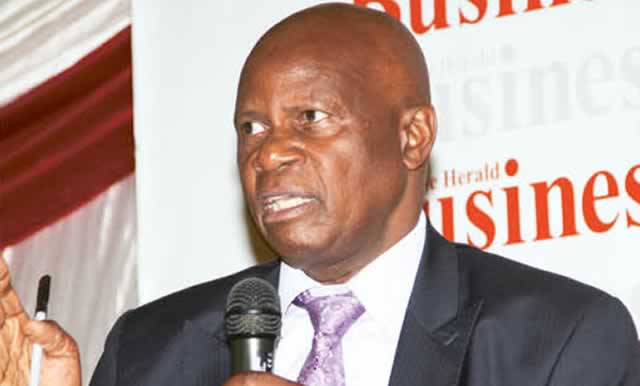Editorial Comment: Nothing scary from fiscal policy review

MINISTER of Finance and Economic Development Patrick Chinamasa faced three problems and needs that could be ameliorated or at least partially met through fiscal measures when he reviewed the economy mid-way through his fiscal year.The first was that revenue from taxes and fees was lower than expected, while State expenditure was expected to slightly increase.
Secondly the balance of payments was even worse than expected, as global mineral prices are lower, so Zimbabwe is importing significantly more than it exports.
Thirdly, Zimbabwean producers — farmers, miners and industrialists — all need to be helped to maximise output, thus creating jobs and wealth and through higher exports and more import substitution, at least partially fixing the balance of payments problem.
He had to do something and had a lot of choices, but was obviously constrained by the additional need of ensuring his measures did not cause more problems than they cured; Zimbabwean producers also require incentives and stability, which tended to rule out dramatic policy shifts.
So, rather sensibly, the minister went for a package of small and fairly precise changes. The general policy of looking at consumption taxes for much of State revenue held firm. The small increase in fuel taxes, 5 cents a litre on petrol and diesel, are well within the ranges of fuel price changes driven by world oil prices; in other words they are tolerable and can be handled.
The knock-on effect for the cost of living will be trivial. Even at transport and bus companies, fuel is only around 25 percent of costs, so these concerns will face, with the fuel rise of under 4 percent, a rise in costs of less than 1 percent.
Transport costs are a small percentage of the costs of other goods, so the costs of these rise by a small fraction of one percent.
If some drivers cut back a bit on fuel use by being more careful, then imports are cut back a bit as well, a bonus. If kombi drivers want to push up fares this must be resisted. Not only is the fuel rise small, but almost all kombi drivers could slash their fuel consumption by more than 10 percent simply by following the Highway Code and driving a bit less dramatically.
More so, the price of oil has been dramatically going down on the world market.
The second set of taxes, on mobile phones and airtime, is a pure revenue measure. There is a lot of money spent on these and Cde Chinamasa clearly felt it was time the State had a cut.
The 5 percent duty on airtime will irritate and will be intensely disliked by heavy phone users, mainly the young, but is not a large tax and the incredible industry that has arisen in the last 15 years will not be harmed.
The re-imposition of standard import duties on phones will probably not have that much effect on purchases, since so many phones are brought in without being declared and phone prices are falling in any case. Some pressure to cut what amounts to smuggling will be needed to get the cash.
His other set of tax measures, changing duties on a range of imported items, herald more flexibility. The Minister appears to want to push up duties on imports where there is an acceptable Zimbabwean product and his definite moves on vehicles confirm this, but where we rely on an import for an essential product he may want to think about a change first and ensure the local product is adequate and available.
This way he can have his cake and eat it. The minister gets more tax revenue from those who refuse to change their buying patterns, but does not add to the cost of living of those more willing to switch to local goods and benefits thereby having lower imports and more local production. Either way he wins.
His other measures were basically designed to boost local production and exports and trim imports.
Cutting royalties on gold ensures production of this critical export remains viable despite falling prices and putting together adequate finance packages for farmers so they can harvest a decent crop automatically slashes the import bill and helps exports, as well as creating a lot of wealth and creating it in a way that benefits a lot of people.
Generally, faced with his fiscal requirements, the Minister has chosen to use a light touch, enhance existing policies and we think has succeeded in ameliorating many problems without having the cure doing more damage than the original malady.
We hope that as we move towards next year’s budget that he will continue to be a precise surgeon as he makes changes, rather than a heavy-handed butcher.








Comments